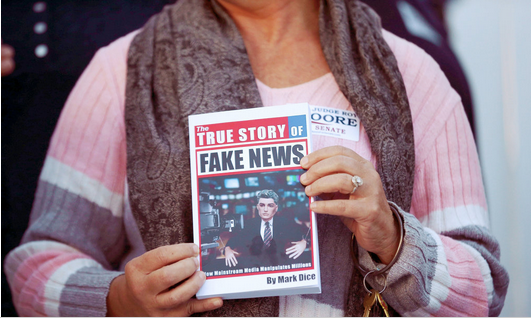Curator note: This article is very intriguing because it is reporting counter-intuitive results, that political persuasion is not effective. We have all seen political persuasion “work” in our lives and throughout history. We have seen political behavior encourage “mobs” and mob rule. if political persuasion doesn’t work, what does? How are these studies designed?
How easy is it to change people’s votes in an election?
The answer, a growing number of studies conclude, is that most forms of political persuasion seem to have little effect at all.
This conclusion may sound jarring at a time when people are concerned about the effects of the false news articles that flooded Facebook and other online outlets during the 2016 election. Observers speculated that these so-called fake news articles swung the election to Donald J. Trump. Similar suggestions of large persuasion effects, supposedly pushing Mr. Trump to victory, have been made about online advertising from the firm Cambridge Analytica and content promoted by Russian bots.
Much more remains to be learned about the effects of these types of online activities, but people should not assume they had huge effects. Previous studies have found, for instance, that the effects of even television advertising (arguably a higher-impact medium) are very small. According to one credible estimate, the net effect of exposure to an additional ad shifts the partisan vote of approximately two people out of 10,000.
In fact, a recent meta-analysis of numerous different forms of campaign persuasion, including in-person canvassing and mail, finds that their average effect in general elections is zero.




